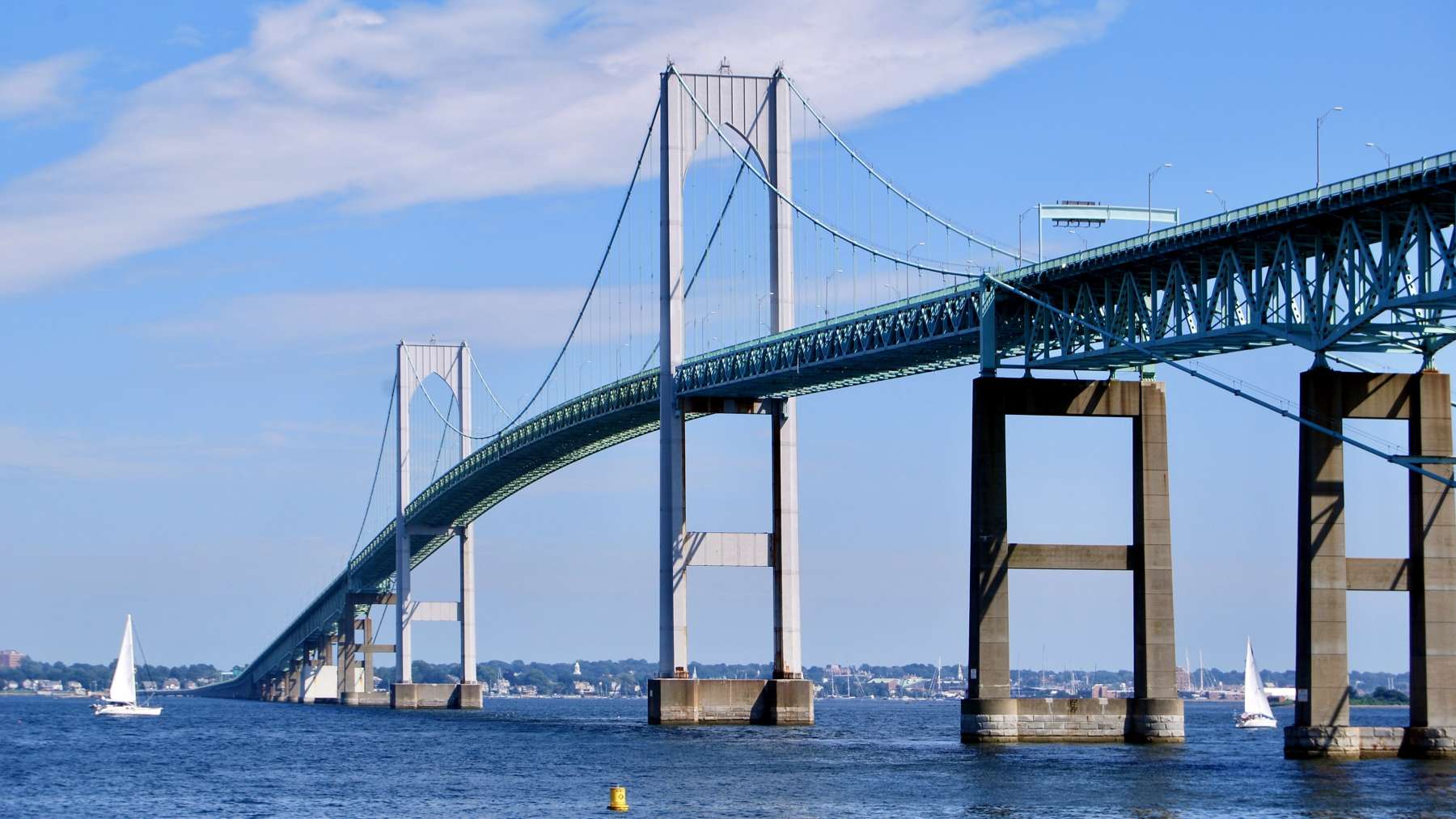Jameson Boyd: Cashless businesses are illegal for retailers in RI, so why is the Newport Bridge an exception?
As a Rhode Islander who has commuted through Newport on low wages in a borrowed car, tired after a hard day’s work I know the cash option has saved me from a time wasting hassle more times than I care to admit. I urge my neighbors over the bridge to reach out to their elected officials and speak up to this issue.
February 15, 2021, 4:24 pm
By Jameson Boyd
The Newport Public Turnpike and Bridge Authority, which oversees the Newport Bridge, has decided to pilot a cashless billing program. This program will bill cars that don’t have an EZ-Pass transponder to their registered address, which unfairly burdens drivers without stable mail or homes, a problem exacerbated by recent postal service delays. Late payments can accrue extra charges. It’s illegal for Rhode Island retail businesses to go cashless (2019-H 5116A, 2019-S 0889); why is this quasi-public agency an exception?
Let’s put ourselves in the shoes of an enterprising young man who has recently taken an interview for a kitchen job in Newport. He borrows a car to get across the bridge and is frustrated to see no cash lane, with no other choice he pulls through the lane, committing a fineable offense. The bill goes to the registered car owner, who hopefully turns the bill over to him. He has to mail the original balance within 14 days to avoid a $30 fine, 46 days to avoid another $35 fine. $75 could be the majority of a dishwasher daily take home pay.
Newport is a beautiful city whose economy relies on tourism. However, it is also a city which struggles with income inequality. Going cashless is always functionally a tax on the poor, who can not reliably access banking services. When legislating retail businesses, Democratic leaders in Rhode Island are clear about the need for cash to be an option. “Credit-card only policies are discriminatory to the old, the young and the poor,” explains former state senate finance committee chair William Conley “They can also be used to track spending history to build a profile and make identity theft easier. Those who wish to avoid all that by paying in cash should not be penalized.” RITBA’s proposed cashless program does not even accept credit cards, only EZ-Pass or mailed bills, creating an even more dramatic effect. Hurting drivers without transponders will not help Newport staff its businesses, or bring in more outside tourists.
The Bridge Authority has removed the fine for driving through the EZ-Pass lane without a transponder for the pilot, now just billing the fee through the mail. While this assurance that they won’t raise the fee is a positive thing, it’s not guaranteed to be permanent and completely solidifies the EZ-Pass transponder monopoly over the tolled bridge. This fee is a problem for those whose vehicle is not registered to their most recent residence. It is also taking up time for those to receive, write a check, and send back their bill.
The oversight of the shadowy Rhode Island Turnpike and Bridge Authority has long been limited. Board members enjoy long terms and appointments from the governor lead to little opportunity for oversight. As a Rhode Islander who has commuted through Newport on low wages in a borrowed car, tired after a hard day’s work I know the cash option has saved me from a time wasting hassle more times than I care to admit. I urge my neighbors over the bridge to reach out to their elected officials and speak up to this issue. We need to stand up to the Rhode Island Turnpike and Bridge Authority and the Governor to shine daylight on this new, cashless frontier of class-based discrimination by ending this pilot now and not allowing it to become permenant policy.



